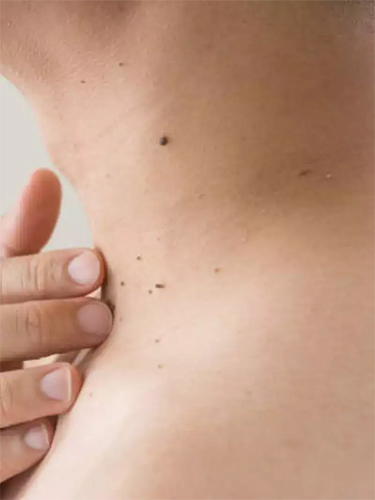
Interviewer : Dr. Ramrakhiani, thank you for joining us today. Warts are a very common skin condition, but there are many misconceptions surrounding them. Can you begin by explaining what warts are and what causes them?
Dr. Ramrakhiani : Absolutely. Small, flesh like bumps or big growths on the skin result from the human papillomavirus (HPV) and are known as warts.
There are over 100 strains of HPV and different strains cause warts in different parts of the body. For example, common warts are typically found on the hands and fingers, while plantar warts are found on the soles of the feet. Genital warts are also caused by HPV and are sexually transmitted.
Interviewer : How are warts spread?
Dr. Ramrakhiani : Warts are spread through direct contact with the virus. This can occur through skin-to-skin contact, touching an infected object, or sharing personal items such as towels or razors.
Interviewer : What are the symptoms of warts?
Dr. Ramrakhiani : Warts can vary in appearance, but they are typically small, fleshy bumps that are rough or grainy in texture. They may also have black dots on the surface, which are blood vessels supplying the wart. Warts can be painless, but some, like plantar warts on the feet, can be painful and uncomfortable.
Interviewer : How are warts treated?
Dr. Ramrakhiani : There are a number of treatment options available for warts, depending on the type and location of the wart. Standard treatments may involve :
- Topical medications : Over-the-counter medications containing salicylic acid can be applied directly to the wart to help it peel away gradually.
- Cryotherapy : This treatment involves freezing the wart with liquid nitrogen which causes it to die and fall off.
- Excision : In some cases, surgical removal known as excision may be necessary to eliminate warts.
- Laser therapy : This treatment uses lasers to destroy the wart tissue.
Interviewer : What can people do to prevent warts?
Dr. Ramrakhiani : There are a few things you can do to reduce your risk of getting warts:
- Clean your hands with soap and water , frequently.
- Avoid touching warts, especially on yourself or others.
- Avoid sharing personal belongings like towels and razors.
- Wear shoes or sandals in public places, such as swimming pools and gyms.
Interviewer: What are some common misconceptions about warts?
Dr. Ramrakhiani: One common misconception is that warts are contagious through casual contact such as shaking hands. However, warts are only spread through direct contact with the virus. Another misconception is that warts are always painful. While some warts can be uncomfortable, many are painless.
Interviewer: Dr. Ramrakhiani, thank you for taking the time to share your insights about warts. I believe this information will prove beneficial to many individuals.
Dr. Ramrakhiani: You’re welcome. I hope this information helps people understand warts better and feel more comfortable seeking treatment.
